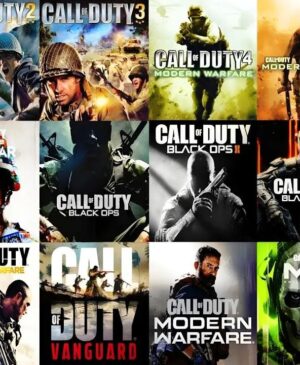OPINION – No Man’s Sky was an interesting concept in the making. A game with nearly infinite possibilities, created by the small underdog team of 15 called Hello Games. It has been in the making for almost five years, with multiple setbacks, it sounded like a tragic story of the underdog developers, similarly to the development of Undertale, or Hyper Light Drifter.
From interviews on The Colbert Report, and to massive E3 demos, plus Sony’s hype machine, No Man’s Sky was reaching for the stars quite literally. It was hailed to be the next cultural phenomenon, similar to Halo 2, Minecraft and even World of Warcraft. After years of hype, and a delay (which resulted in death threats), the game is finally here.
Downhill to refund oblivion
The game was released in August of 2016, and the reception feels like a sad trombone effect of waa waa waaaa. Years of hype, interviews, and demos have been put into question, especially the words of Mr. Sean Murray. Flashbacks for many to the old PC game Spore were returning. The difference is that the creator has not been able to be reached by any media outlet once the game was released, is rather disturbing. While I could understand that a product might be received negatively, it does seem we did get a product falsely advertised. An entire list was made on Reddit which compiled the interviews, videos, E3 presentations, which was then compared to the game that we did get in the end.
Many users have criticized Sean Murray, and one comment reads under a video: ” I bet Sean Murray had a nervous smile all the way to the bank. Fucking lying scumbag”. Sure that may seem harsh, but when you compare the pre-release footage with the actual game, it does not feel like a triple AAA title’s cost, and neither does our review score seem justified, for such a game that many have called : “An early access title”. Sure people are having fun with it, and many enjoy the game, but in terms of mechanics promised vs delivered No Man’s Sky is an absolutely paper-thin game.
So while there can be bullshots, and features sometimes missing from a product, the extensiveness of said cuts were astonishing. Sure Watch Dogs did not look as great as the E3 demo, or Destiny had its campaign rebooted, but I have never seen in my life such a bad game. Yes, we gave it a 7/10, but even that can be considered as a goodwill from our end for this product. Hell, when I played the game I was stunned on the downgrade in terms of graphics/mechanics, the inability to travel from one solar system to another via normal pulse drive (which was also a cut feature), and the abysmal inventory and combat management.
However, we’re not here to talk about the game’s issue that’s been discussed in our review already. Nope, we are here to talk about the what might be the biggest rip-off in gaming history (after Godus HEYOOO!), and how this could set a legal/ethical precedent to the video game industry.
Legality and responsibility
This issue has been brewing for some time, and really became more apparent after E3 2013 with the new consoles being announced. It turns out, and at least finally with NMS the mainstream media has figured it out that: Publishers lie, and many games riddled with bullshots, features that never make into the game. There does not seem to be any standards set; publishers can do what they want when it comes to presenting the video game.
They can do this as near the end of the game’s development they can release new trailers that match the fact, but sometimes Publishers are not obligated to this. Reviews are also embargoed for certain games, which is usually waved off as “We want everyone to experience the game at the same time”, or “It is an online only game so we cannot allow early reviews”. Which sounds ridiculous in the 21st Century, especially with every other industry providing preview copies, builds, items, and movie press screenings to the journalists.
The videogame industry still feels like it is stuck in the 1980s, sure we get Triple A games, but the practices shown by both developers and publisher have been disheartening. The concept of refunds for products that are in horrible conditions have also been an interesting experience, with No Man’s Sky finally breaking the mold (After Arkham Knight), and mass refunds have been offered by Amazon, and Sony for the problems experienced by players trying to enjoy No Man’s Sky.
While it is great that under great pressure companies are willing to refund games that are severely broken. However what about games where promises were made, with trailers, previews, and the final product is severely different, or what if the consumer does not enjoy the game due to framerate issues, or mechanics being fundamentally broken? Just Cause 3 for example is another game where there are severe framerate issues on the PlayStation 4, there is a risk that the player cannot get a refund if he goes in without checking the issues with the game. A game that is fundamentally suffering from heavy issues is being left on the PSN Store feels like a bad joke.
Another problem with the lack of refund options within a reasonable limit, or reason provided by the consumer is that some games are good in the beginning, but suffer terribly in mid and end parts. I don’t mean in terms of storytelling, but rather gameplay issues. A personal experience of mine was with The Division. A Post-apocalyptic RPG that I reviewed, and scored rather highly plus enjoyed the game. This was no review copy, I bought the game based on the Beta impressions, and my time with it was fun during this limited Beta run.
The endgame detailed in our articles genuinely sounded fun. Cue me buying it with the season pass, and three months later I wrote to Sony support asking for a refund. Why ? Well the constant patches, issues, and server maintenances hampered my ability to play the game severely. The gameplay mechanics were getting switched around, and it has become a joke to play it. Now you could say, but why did you ask a refund three months from the release date? You enjoyed the game!
The game was enjoyable up to the point where it became apparent the developers had inexperience in balancing the game (this only came to light around 3-4 months, as now the developers have delayed a DLC in order to fix everything with a patch), and the constant crashes/maintenances were limiting my experience.
However what if the developers would not provide us with game patches after a while? Just Cause 3 to this day is still a broken mess, and as evidenced above The Division has run into its own issues as well.
Protectionism, and abuse of system
It feels funny to see that there are consumer protection laws, but the video game industry just does the bare minimum to comply with these laws. Look at Sony and Microsoft for instance, if your PSN account gets hacked, and the system locks you out well good luck. Even as of 2016 there are cases of hacked accounts not getting refunds, or if a chargeback is made against Sony.
Allowing refunds is a double edged sword, and would have to be reviewed on a case by case basis, as there would be some trolls that would abuse such a refund system. A rather generous refund system is Steam‘s, but even that is not fool proof.
It seems that Sean Murray‘s antics, and the issues surrounding the Next Generation Console games has reached a boiling point, and even mainstream websites have picked up on this rather interesting turn of events. The ball is now in the hands of publishers, and developers. Will they keep idly and easily throwing the consumers with bullshots, and lofty promises, or will the consumer protection agencies finally take a good long look at the videogame industry, and hopefully one day create a much more fairer system. Otherwise in the end we might get even more Sean Murrays in the future.
-Dante-


















Leave a Reply